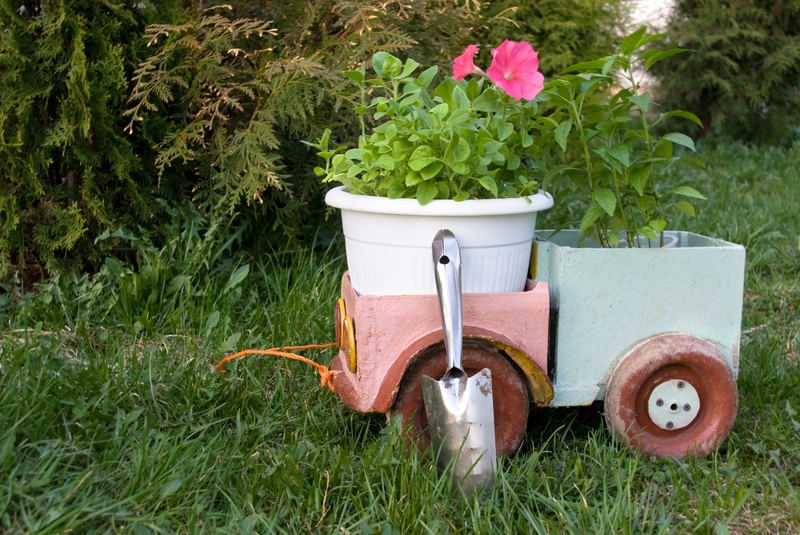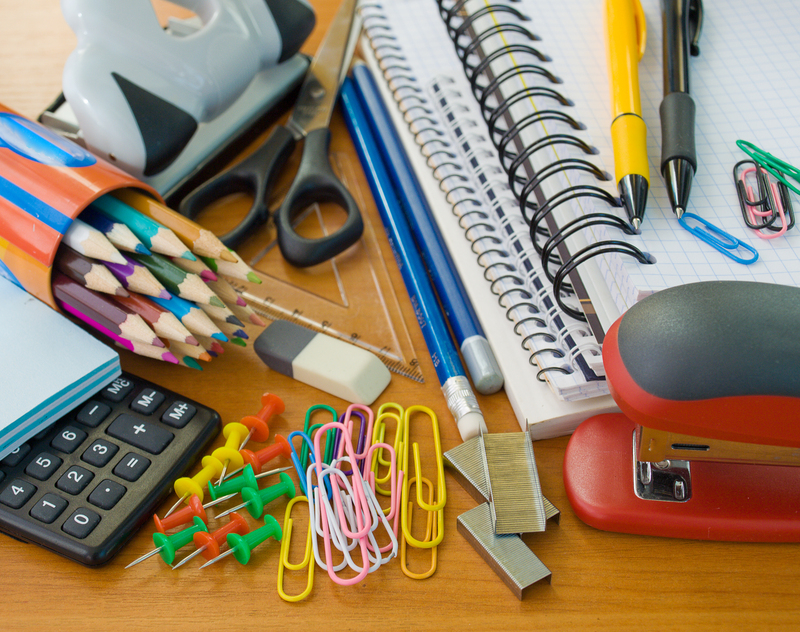Essential Tips for Disposing of Masks and Gloves Safely
The widespread use of masks and gloves, especially since the COVID-19 outbreak, has helped save countless lives. However, their improper disposal has also contributed significantly to environmental pollution and posed public health risks. Understanding how to dispose of masks and gloves safely is crucial for both personal safety and our planet's well-being.
Why Safe Disposal of Masks and Gloves Matters
PPE (personal protective equipment) such as face masks and gloves are designed to create a barrier against harmful pathogens. But once used, these items can harbor bacteria and viruses, making their disposal a public health priority.
Besides being a health concern, improper disposal of single-use masks and gloves has a severe environmental impact. Most disposable masks are made with layers of polypropylene plastic, while gloves often contain latex, nitrile, or vinyl--none of which biodegrade easily. When carelessly tossed into the environment, they can cause significant plastic pollution and threaten wildlife.
Key Reasons for Proper Mask and Glove Disposal
- Environmental Protection: Prevents plastic pollution and reduces the strain on waste management systems.
- Public Health: Minimizes the risk of virus transmission and contamination of surfaces.
- Wildlife Safety: Prevents animals from ingesting or becoming entangled in discarded PPE.
- Community Cleanliness: Keeps public spaces free from unsightly litter and potential biohazards.

Best Practices for Disposing of Masks Safely
If you've ever wondered, how to throw away masks and gloves safely, the following guidelines offer practical and responsible solutions for everyone.
Step-by-Step Guide: How to Dispose of Masks Properly
- Remove Carefully: Before you take off your mask, clean your hands thoroughly with soap and water or an alcohol-based sanitizer. Touch only the ear loops or ties--avoid touching the front part of the mask as it may be contaminated.
- Contain the Mask: Place the used mask directly into a lined garbage bin. Do not throw masks on the sidewalk, in shopping carts, or in recycling bins.
- Seal or Bag Medical Masks: If possible, place disposable masks in a plastic or paper bag before putting them in the trash. This step is especially important if you or someone in your household may be ill.
- Do Not Litter: Never leave used masks in public places, streets, parks, or parking lots, as they may contaminate the surroundings and pose a risk to sanitation workers.
- Wash Reusable Masks: If using cloth masks, launder them after each use with hot water and detergent. Avoid wringing or shaking used masks to decrease the risk of spreading microorganisms.
What Not to Do With Used Masks
- Don't burn masks at home--this releases toxic fumes.
- Don't flush masks down the toilet--they will clog plumbing and disrupt sewage systems.
- Don't put disposable masks in your recycling bin--these are not recyclable as household plastics.
Safe Glove Disposal Techniques
Just like mask disposal best practices, used gloves are also considered hazardous after use. Here's how to ensure you're disposing of gloves safely:
Correct Procedure for Throwing Away Gloves
- Remove Gloves Properly: Pinch the outside of one glove at the wrist without touching your skin. Peel the glove away from your hand, turning it inside out. Hold the removed glove in the other gloved hand, then slide an ungloved finger under the wrist of the remaining glove. Peel it off, trapping the first glove inside.
- Bag and Bin: Place gloves in a regular garbage bin. For added safety, especially if gloves were used in a medical environment, place them in a sealable plastic bag before disposal.
- Do Not Reuse Disposable Gloves: They are designed for single use only. Never wash or disinfect disposable gloves for reuse.
- Wash Hands Immediately: As soon as you finish handling used gloves, wash your hands thoroughly.
Common Glove Disposal Mistakes
- Leaving gloves in shopping carts or parking lots.
- Throwing gloves into recycling bins.
- Flushing gloves down toilets (which is both harmful and costly for plumbing).
- Burning gloves or attempting to compost non-biodegradable gloves.
How to Reduce Environmental Impact From Disposed PPE
Millions of disposable masks and gloves are used worldwide every day. If they all end up in landfills (or worse, streets and waterways), the resultant pollution can be catastrophic.
There are, however, practical ways to make mask and glove disposal a little kinder to the environment:
Eco-Friendly Alternatives to Single-Use Masks and Gloves
- Use Reusable Masks: Choose cloth masks, wash them regularly, and reserve single-use masks only for high-risk situations or medical settings.
-
Choose Biodegradable or Compostable Gloves:
Whenever possible, select gloves made from natural latex (not synthetic), but check for allergies.
Note: Most "compostable" PPE still requires industrial composting facilities. - Support PPE Recycling Initiatives: Some companies and local governments have begun specialized recycling programs for masks, gloves, and other PPE. Check whether such services exist in your area.
- Buy in Bulk Responsibly: Reduces packaging waste and ensures you only use what is necessary.
Community Actions to Reduce Mask and Glove Litter
- Educate friends and family about proper disposal methods.
- Participate in local cleanup events targeting PPE litter.
- Advocate for more disposal bins in high-traffic areas.
- Encourage businesses and offices to provide clear signage on safe PPE disposal.
Special Considerations for Healthcare Settings
Medical facilities dispose of masks and gloves as biohazardous waste. If you're caring for a COVID-19 patient, or if you have been exposed to infectious diseases, follow these extra precautions:
- Use a double-bag system: Bag contaminated PPE in a plastic bag, tie it securely, then place it in a second bag.
- Label hazardous waste clearly to alert sanitation workers.
- Contact your local municipality for additional guidance on hazardous household waste disposal.
- Never mix PPE waste with regular recyclables.
The Impact of Improper PPE Disposal on the Environment
Improper mask and glove disposal not only causes visual pollution but also poses long-lasting risks:
- Wildlife Threats: Birds, turtles, and marine life can become entangled in ear loops or ingest mask pieces, leading to injury or death.
- Waterway Contamination: Masks and gloves that enter rivers and oceans break down into microplastics, entering the food chain and harming aquatic ecosystems.
- Soil Pollution: Non-biodegradable PPE takes decades to break down, leaching chemicals into the environment.
- Increased Landfill Burden: Billions of masks and gloves accumulate in landfills, absorbing space and impeding natural decomposition.
Making conscious choices about how to throw away masks and gloves helps prevent these long-term environmental hazards.

Frequently Asked Questions
Can masks and gloves be recycled?
- No, most municipal recycling systems do not accept used PPE. These items are contaminated and often made from materials incompatible with regular recycling processes.
- Special programs: Some organizations offer PPE recycling boxes, but check for availability in your area.
Is it safe to reuse disposable masks and gloves?
- Disposable masks and gloves are for single use only. Attempting to clean and reuse them diminishes their effectiveness and increases your risk of contamination.
How should sharps or medical waste be disposed of at home?
- Special containers: Use clearly marked, puncture-resistant containers for sharps or contaminated medical items.
- Contact local services: Check local municipal guidelines for hazardous and infectious waste disposal.
Conclusion: Making Mask and Glove Disposal Safer for All
Safely disposing of masks and gloves is a simple yet powerful action that protects public health and preserves our environment. By adopting the steps above, each of us can help reduce pollution, keep our communities clean, and protect sanitation workers and wildlife.
Let's remember to always put used PPE into garbage bins, never leave them in public spaces, and look for eco-friendly alternatives wherever possible. Education, awareness, and personal responsibility are the key ingredients for a safer, cleaner future.
Take Action Today:
- Follow best disposal practices for all types of masks and gloves.
- Spread the word about the importance of proper disposal methods.
- Support and participate in eco-friendly PPE programs in your community.
Together, we can create a healthier environment--even in challenging times--by learning and sharing these essential tips for disposing of masks and gloves safely.
